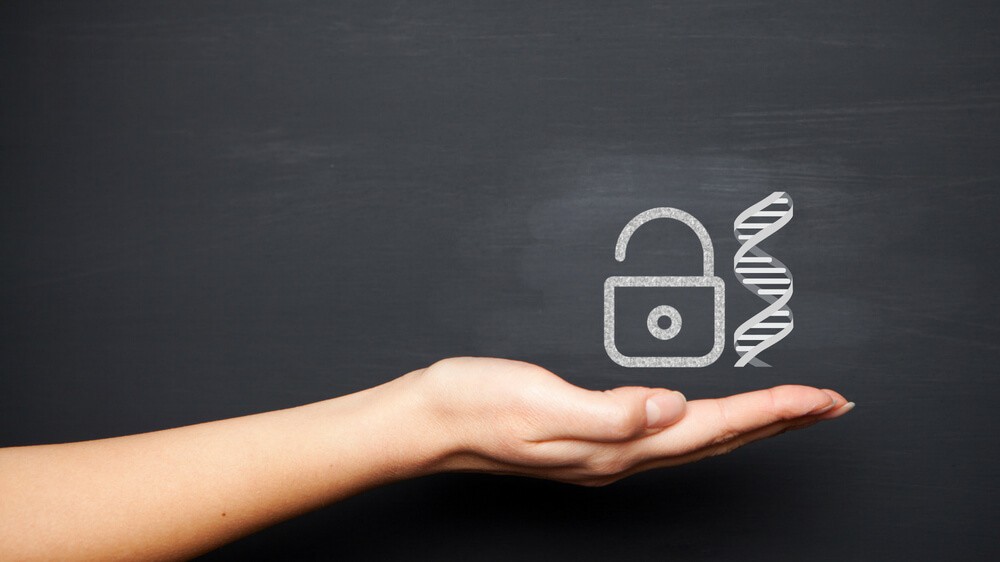Home DNA Tests and Your Privacy: Get the Facts

Home DNA Tests and Your Privacy: Get the Facts
There have been several news stories lately about unauthorized use of personal data, covering an eclectic range of categories: credit-information breeches, selling of social-media information, and—most recently—the use of ancestry-related DNA databases to capture criminals, including the notorious Golden State Killer. In this age of “over-sharing” and paperless digital records, what about home DNA tests and privacy? Should you be concerned? Here are some facts.
Who Stores DNA Data and Why?
State Governments
Since 1983, approximately 4 million newborns in the U.S. each year are screened for a variety of congenital disorders—an early-detection practice performed in nearly all states that has saved thousands of lives. What is not commonly known is that, following screening, many states keep leftover DNA-rich specimens and maintain biobanks. DNA information can then be shared or sold for research purposes. Some states require that parents be informed of their right to request that a sample be destroyed, but not all. So concerns about keeping our genetic info private can start before we’re even old enough to realize it!
The FBI
Most Americans are familiar with CODIS, a collection of FBI-managed databases containing millions of DNA profiles from convicted felons. Contributions to these databases come from federal, state, and local forensic labs. CODIS is an invaluable tool, since data can help law enforcement identify possible perpetrators, missing persons, and more.
Some Commercial Companies that Offer Home DNA Tests
There are providers of home DNA tests, specifically ancestry-related ones, that maintain databases accessible to anyone who pays for membership. Customers can opt out of making their DNA data accessible to other members, but if they want to maintain the privacy of their data, it is the customer who is responsible for ensuring they take that important step. Some companies also share or even sell data.
When trying to identify the Golden State killer, law enforcement accessed and used these types of DNA databases to narrow the field of possibilities for finding their man. More sophisticated forensic methods were then used to link Joseph James DeAngelo to the crimes committed by the notorious killer. DeAngelo’s distant relatives were unwittingly drawn into a cold-case investigation because their DNA was public.
The bottom line is: If you permit your data from DNA tests to be stored and then possibly shared either for genealogical, research, or other purposes, be advised your privacy is no longer ensured.
Tests by HomeDNA™ and your Privacy
At HomeDNA, we take the privacy of our customers’ data very seriously for all tests performed at our highly-accredited in-house laboratory. Here are some specific steps we take to earn your trust:
- With the exception of legal paternity tests, all test samples (cheek swabs) are destroyed shortly after testing is complete
- We only analyze and store data for the specific test that was ordered by the customer (we do not perform any other types of analysis on existing data)
- We do not maintain publicly-accessible databases of ancestry-related or other data
- We are committed to protecting the security of your information. We use a variety of industry-standard security technologies and procedures to help protect your information from unauthorized access, use, or disclosure
- We do not share or sell any customer’s data with companies or entities that are not connected to HomeDNA’s parent company, DDC. Because of this policy, no “opt out” is ever necessary for our customers
SEE OUR PRIVACY POLICY >
Some Final Thoughts about Home DNA Tests and Privacy
DNA technology offers endless possibilities in providing useful and sometimes life-changing information about ourselves, and it’s here to stay. So should you be concerned about your privacy? Home DNA tests are convenient, easy, and amazing tools for self-discovery, but it’s wise to do some research before choosing a DNA company and to become educated about its policies and practices. Not all companies are the same, and you are in control.


Comments (0)